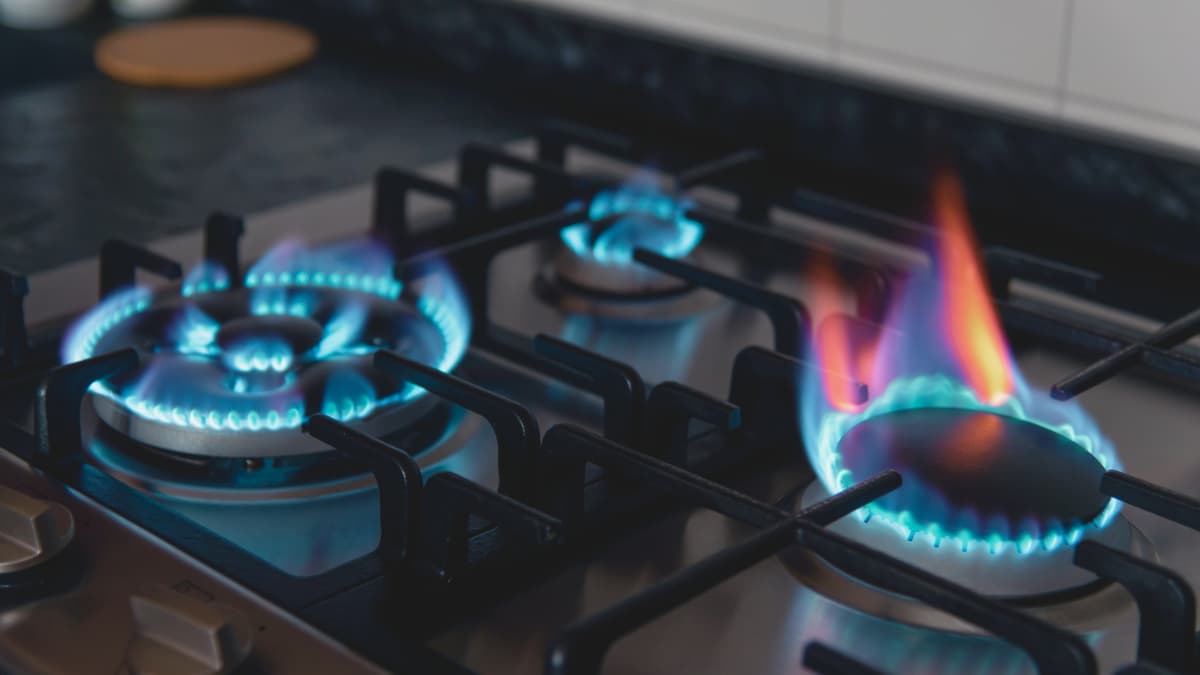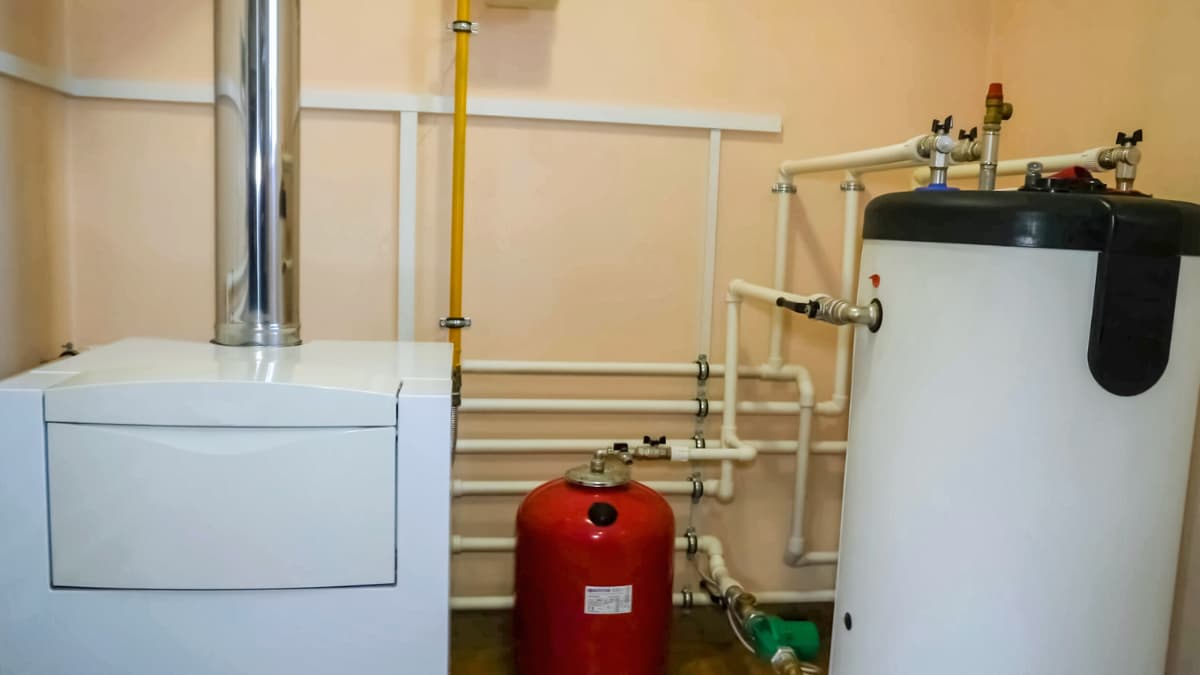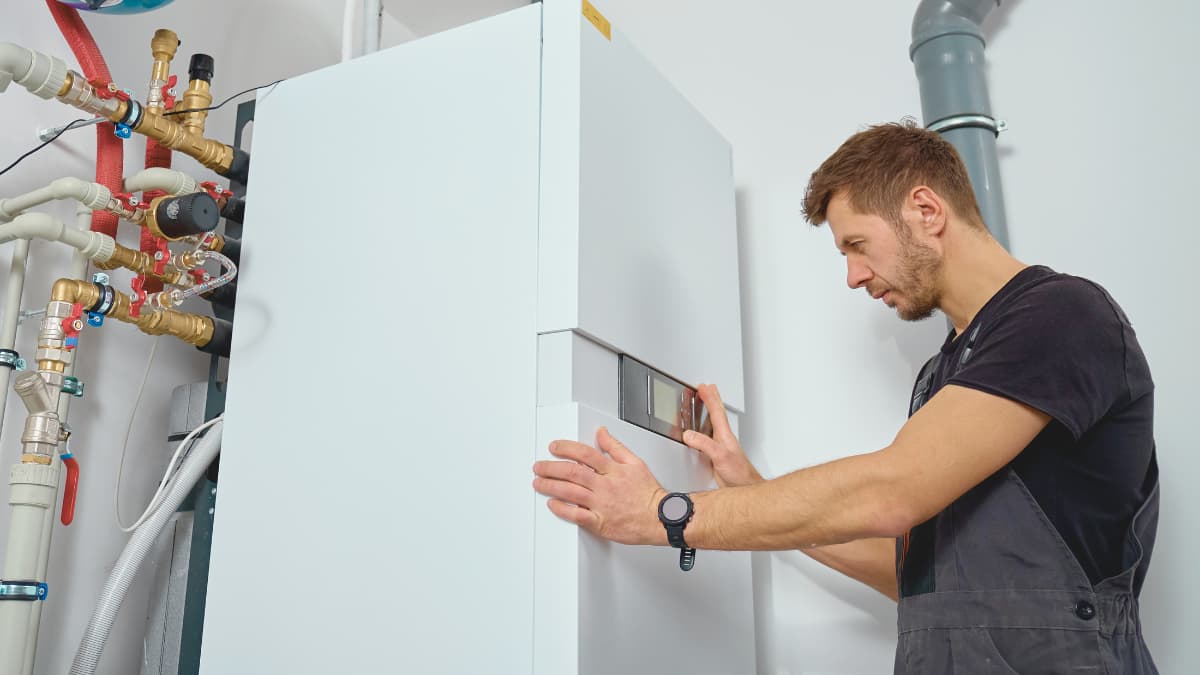Gas is a vital part of daily life in millions of UK homes, powering our heating, hot water and cooking. When managed safely, it’s a reliable and efficient energy source. But if things go wrong, the consequences can be severe. Faulty appliances, undetected leaks, and poor ventilation can all lead to accidents, injuries, or exposure to carbon monoxide, a gas that is both invisible and deadly.
That’s why gas safety matters. Taking a few simple steps each year can make a big difference to your wellbeing and peace of mind. From regular servicing to knowing what signs to look out for, staying safe doesn’t have to be complicated.
Professional gas engineers play a vital role in this process. Through proper training, certification and up-to-date knowledge, they help protect households across the country. At Staffordshire Training Services, we support engineers with the skills and confidence they need to carry out this vital work.
Check Appliances Annually
Annual servicing is one of the most effective ways to keep gas appliances running safely and efficiently. Whether it’s your boiler, cooker or gas fire, having a qualified engineer inspect each appliance once a year helps to spot wear and tear before it leads to a serious fault.
These checks ensure that components are working correctly, ventilation is adequate, and there are no hidden issues that could put you or your property at risk. Even if everything seems to be working fine, problems can build up over time without obvious signs.
Always use a Gas Safe registered engineer for any servicing or safety check. This guarantees the work is carried out by someone who is appropriately trained, certified, and legally permitted to work on gas systems in the UK.
A routine check is a simple step that can offer lasting peace of mind, and it could prevent much bigger problems further down the line.
Install Carbon Monoxide Alarms
Carbon monoxide (CO) is a serious risk in any gas-heated home. This invisible, odourless gas can be produced by faulty or poorly ventilated appliances, and exposure can lead to serious illness or even death. Because it gives no warning signs, having a working carbon monoxide alarm is essential.
Alarms should be placed near gas appliances, such as boilers or gas fires, as well as in or just outside sleeping areas to provide an early warning during the night. Always follow the manufacturer’s instructions on placement and maintenance, and test alarms regularly to ensure they are in complete working order.
To ensure reliability and accuracy, choose a carbon monoxide alarm that meets the relevant British Standard, BS EN 50291. These alarms are designed specifically for domestic use and provide the level of protection needed in the home.
A quality alarm is a small purchase that could save a life. Every home with gas appliances should have one.
Know The Warning Signs
Gas appliances can sometimes show subtle signs that something isn’t quite right. Knowing what to look for can help you catch a problem early and prevent it from becoming dangerous.
Common signs that an appliance may be unsafe include:
- Yellow or lazy flames instead of a strong, blue flame
- Sooty stains or discolouration around the appliance or flue
- Pilot lights that keep going out or are difficult to relight
- Excess condensation on windows near the appliance
These issues may suggest poor combustion, blocked vents or a fault with the appliance. Even if the appliance still appears to be working, these warning signs should never be ignored.
If you notice any of these symptoms, stop using the appliance and contact a Gas Safe registered engineer to carry out an inspection. Early action can prevent more serious problems and help keep your home safe.
Ask To See ID
Every Gas Safe registered engineer carries an official ID card, and you have the right to see it before any work begins. Whether you’re a homeowner or a tenant, checking this card is a simple way to confirm that the person entering your home is appropriately qualified to carry out gas work.
The Gas Safe ID card includes several details:
- The engineer’s photograph
- The expiry date of their registration
- A list of the types of gas work they are certified to carry out
Not all engineers are qualified for every type of gas job, so it’s essential to check that the work needed is covered on their card.
Asking to see ID is not rude; it’s responsible. Reputable engineers will expect it and be happy to show you. It’s your safety, and your right to be sure the person doing the work is fully qualified.
Register For Annual Reminders
With busy schedules and daily demands, it’s easy to forget when your next gas safety check is due. That’s why signing up for annual reminders is a smart way to stay on track and avoid missing a critical inspection.
Services like the Gas Safe Register offer free reminder alerts by email or text, helping you keep on top of your responsibilities. These prompts can be helpful for landlords, homeowners, and property managers who need to ensure that gas appliances are checked and certified annually.
Missing a safety check can mean going without a valid certificate or allowing faults to go unnoticed. A quick sign-up ensures you never miss a date and helps keep your home or property protected all year round.
Keep Vents And Flues Clear
Good ventilation is essential for gas appliances to operate safely and efficiently. Without proper airflow, gases like carbon monoxide can build up indoors, creating a serious health risk. That’s why keeping vents and flues clear is a simple but vital part of staying gas safe.
Make sure external flues and air vents are free from blockages such as leaves, debris or snow. Obstructions can prevent harmful gases from escaping properly, especially during colder months.
Indoors, avoid covering or sealing air bricks, grilles or ventilation panels, even if they cause a draught. These features are designed to allow fresh air into the room and help appliances burn fuel efficiently and safely.
Never block a vent, even temporarily, as it could compromise your safety without you realising it. A well-ventilated space is a safer space.
Cautious With DIY Work
Gas work should never be treated as a DIY task. Even well-meaning attempts to fix, adjust or install gas appliances can lead to dangerous consequences if not done by a qualified professional.
Tampering with pipework, connections or appliances without the proper knowledge and certification can result in gas leaks, fire hazards or exposure to carbon monoxide. In many cases, the damage may not be immediately visible, making it even more risky.
It is a legal requirement in the UK that anyone carrying out gas work must be Gas Safe registered. This ensures they have the proper training, experience and assessment to work safely and in line with current regulations.
No matter how handy you are, leave gas work to the professionals. It’s safer, smarter and the law.
Understand Legal Responsibilities
Gas safety is not just best practice; in many cases, it is a legal requirement. Landlords, in particular, have clear responsibilities when it comes to the safety of their tenants.
By law, landlords must arrange an annual gas safety check for all gas appliances, pipework and flues provided within the rental property. Once the check is complete, a Gas Safety Certificate (CP12) must be issued by a Gas Safe registered engineer. A copy of this certificate must then be given to the tenant within 28 days, or before a new tenancy begins.
Tenants also have rights. They are entitled to see proof of a valid gas safety certificate and should feel confident in requesting it. If it hasn’t been provided, tenants can contact their landlord or letting agent to ensure the property is compliant.
Professional servicing in rented accommodation is not only a legal duty, but it’s also essential for protecting lives and maintaining trust between landlords and tenants.
Know What To Do In An Emergency
Knowing how to respond to a gas emergency can make all the difference. If you ever suspect a gas leak, whether from an appliance, a pipe, or somewhere else on the property, it’s essential to act quickly and calmly.
Start by turning off the gas supply at the meter if it is safe to do so. Then open all windows and doors to allow fresh air to circulate and help disperse any gas in the air. Do not use electrical switches, light matches or create any sparks.
Once you’ve taken these steps, leave the property immediately and call the National Gas Emergency number: 0800 111 999. Lines are open 24 hours a day, and trained responders will guide you through what to do next.
Never ignore the smell of gas or delay taking action. Even a small leak can lead to serious consequences if left unreported. Trust your instincts, and make the call.
Promote Ongoing Awareness
Gas safety should not be something we only think about once a year. Keeping it at the front of mind helps create a safer environment for everyone. Regular conversations within your household about topics such as appliance servicing, carbon monoxide alarms, and emergency procedures can make a real difference, especially in homes with children or vulnerable adults.
It’s also worth sharing gas safety tips with friends, neighbours and family, particularly if you know someone who may be unsure about their responsibilities or unaware of the risks. A simple reminder to book a service or test an alarm could help prevent a serious issue.
Gas Safety Week, held each September, is the perfect time to check your appliances, update reminders and refresh your knowledge. Participating in awareness campaigns like this helps spread the message and keep safety a shared priority within your community.
Confidence Comes From Being Prepared
Gas safety is not about being alarmed; it’s about being informed. By taking a few straightforward steps each year, you can protect your home, your family and your peace of mind. Whether it’s booking an annual check, testing a carbon monoxide alarm or knowing who to call in an emergency, each action contributes to a safer living environment.
At Staffordshire Training Services, we believe that confidence in gas safety begins with knowledge and continues with proper training. If you’re considering a career in the gas industry or looking to update your qualifications, we’re here to support you every step of the way.
Safe homes start with safe habits. Now is the time to take action, share what you’ve learned and help build a safer future, one check at a time.
Related Articles
- Annual Gas Safety Checks Save Lives
- ACS Initial Assessment For Domestic Gas Explained
- Inside the Level 3 Gas Engineering Apprenticeship
- Starting Out with the Gas Managed Learning Programme
- Training As a Gas Engineer In 2025
Prefer an AI Summary?



